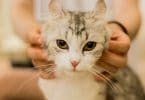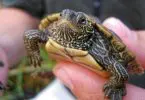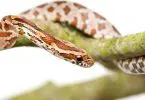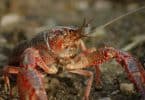Bearded dragons are one of the most adorable pets one can ever have. These fantastic lizards are one of the most genius pets in the reptile kingdom. They are not only easy to groom but also very hygienic and comfortable to play with pets. Therefore, they are very popular among most pet owners having children at home. However, sometimes you notice something unusual about this little member of your family. It starts stinking!
So, now do you need to get worried about it? Or is it completely normal for bearded dragons to stink? Can you do anything about your stinking little bomb? Or you have to make your nostrils habitual of that smell? 90% of bearded dragon parents worry about their stinking beardie and try multiple hacks to remove it. However, in their quest, they fall prey to multiple sponsored products that can harm their baby. So, we have decided to help you with the relevant and most authentic information about the reason behind a particular stink of bearded dragons. Continue reading to learn the most authentic information and how you can manage it easily at home.
Table of Contents
Are Bearded Dragons Smelly?
No, Naturally bearded dragons and all the other reptiles are not smelly!
Reptiles are one of the most hygienic and odor-free pets. Unlike mammals, they do not release any kind of specific scents to mark their territory and presence. The smell in bearded dragons is due to the oxidation of foul matter in the surroundings.
If you had a dog at your home, you must have noticed that they are habitual of marking their territory with their urine, feces, and other musky secretions. However, in the case of bearded dragons and other reptiles, the sense of marking the territory is not well established. So, they do not have developed any secretion mechanism to claim the leadership roles.
Moreover, cold-blooded animals usually do not have sweat glands to control their temperature. Instead, they usually work by changing their skin tone, habitat, environment, and other physical measures.
However, you must be intrigued to know that why then most of the other bearded dragons’ owners are complaining of the intolerable smell of their beardie in normal practice. Let us talk about it in detail.
Reasons Of Smell In Bearded Dragon:
There can be many reasons for a smelly bearded dragon. These highly objectionable odors arise from the oxidation and reduction of the organic matter present in the cage. More precisely, ignoring the proper grooming and hygiene of bearded dragons results in bad odors in the bearded dragons.
Following are the most popular reasons behind a stinking bearded dragon:
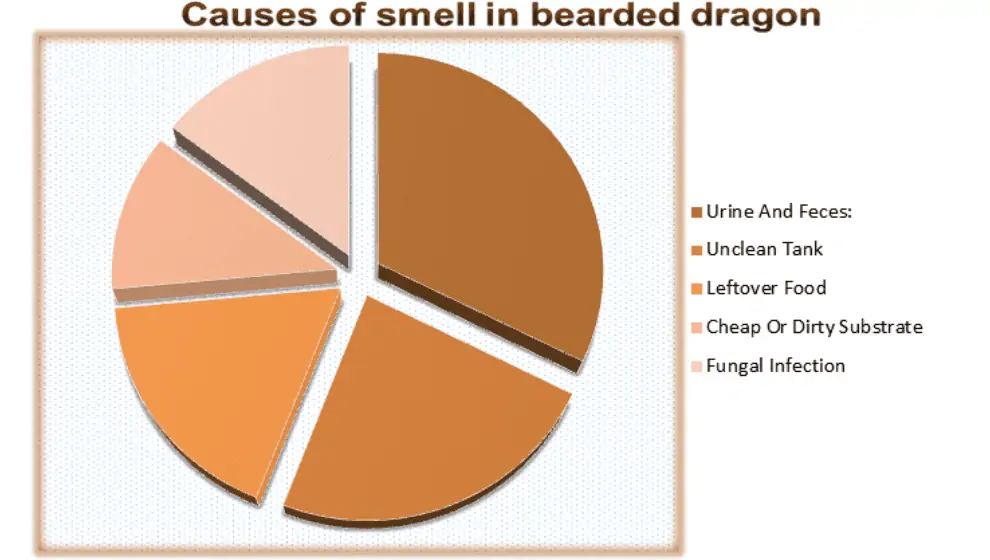
Urine And Feces:
The smell produced from smell and feces is the biggest cause of a stinky bearded dragon. Though bearded dragon poo and pee in a very small quantity, however, their feces and urine smell a lot worse. Therefore, the reptile may collect the smell.
Think of an example. How an animal coming in contact with dung can smell? Worst, right? (don’t go far in your imagination… chuckles)
The same is the case with your beardie. So, if you clean up the dropping right away, your little friend will not gather the smell and won’t stink again.
You may also link it to the poor hygiene of your bearded dragon. By having the feces around all the time, many harmful bacteria and parasites that luckily escaped in the feces can now attack your bearded dragon easily. So, now your bearded dragon is more prone to lethal diseases by having less immunity against microbes reaching the systemic circulation.
Most of the people complaining about the stinking beardie have the case of leaving poop in the tank for hours and days.
Remember, you need to clear the tank of the dropping at least once or twice a day. The best practice is to take care of the most probable pooping schedule of your bearded dragon. Most bearded dragon poo within 4 or 5 days after eating. So, you can check it occasionally and clean it as you find any droppings.
However, the timing and schedule depend a lot on the age and the variety of the bearded dragon. Moreover, it also depends on the number of fibers and other content causing the mobility of the GIT tract.
During poop cleaning always check for the color, texture, and any irregular content or texture of poop. A bearded dragon’s poop is the biggest indication of its health.
Unclean Tank:
Unclean tanks are the second most popular reason why bearded dragons start getting a specific odor. Even if you clear the dragon’s poop regularly, you must clean the tank and sanitize it periodically. By periodically we do not mean after months. It means you have to clean your bearded dragon’s tank once every fortnight.
It is because bacteria, fungi, and other microbes oxidize the matter in the surroundings. It can be foodstuff, part of droppings, and other matter in the tank. Moreover, humidity also causes the massive growth of certain odor forming harmful bacteria. Not only does it causes severe infections in bearded dragons but it also causes your bearded dragon to collect that odor. These smells appear as the ones coming directly from your beardie. However, in reality, it has a different origin.
Always clean the tank once a week and deep clean and sanitize each object once in a fortnight. You may know if your bearded dragon is smelling because of a dirty cage when it starts smelling unclean or use and the same smell come from the tank. If that’s not the case, there can be other problems.
Leftover Food
Most of the bearded dragon owners who complain about stinking beardie, do not care about the feeding method a lot. To feed your bearded dragon accurately you must not only follow the feeding SOPs but also take care of the kind of food you are feeding to your bearded dragon.
You must never leave the food unfinished inside the tank. You know that food items rot most quickly. It can not only encourage the growth of harmful bacteria but also causes the bearded dragon to collect that rotten stench from the surrounding. This will not only can become extremely harmful for your bearded dragon but also calls for an increased rate of animal-to-human infection.
The food rot can also cause your bearded dragon to have skin allergies and in case of shedding, can cause severe skin infection. So, remove the leftover food right away if your bearded dragon has finished up eating. The best practice is to feed your bearded dragon under your supervision.
You may know if your bearded dragon is gathering stink from rotten food if it is smelling extremely sour and putrid.
Cheap Or Dirty Substrate
Substrate or flooring of the pet beardie is the biggest part of the tank. You can never compromise on quality. However, if you purchase your bearded dragon from a low-class breeder, you may notice the smell from your bearded dragon while you take it home.
The smell does not depend on the reptilian properties or variety of lizards you got, it primarily depends on the substrate on which the bearded dragon is kept by its owner. Even if you are confused about the substrate or flooring about your new bearded dragon, never try to go for a shortcut and purchase some dirty and cheap substrate online.
Wood chips as bearded dragon’s substrate are much famous in cheap markets. However, these are a lot much more prone to such problems. Wood chips in some cases are the economical option if you take good care while buying them. Do not buy such chips that are too small that your bearded dragon may try to chew them and choke as a result. Moreover, never go for chemically treated wood chips.
If your pet starts stinking typically like a pet store, you may be sure that it is due to the dirty and lo quality substrate in the tank. Even many well-reputed sellers sell low-quality substrates. So, be vigilant while having that essential for your beardie’s tank. Moreover, it is always best to not buy it directly from the pet store housing bearded dragons.
Fungal Infections Can Be A Cause
Another cause of odor in bearded dragons is the most commonly occurring fungal infection. Fungi are one of the most humidity-loving creatures. They may grow anywhere and can also cause severe skin infection. The growth of fungi increases if
- You do not clean the tank
- Your bearded dragon shares space with other pets
- You leave the organic matter in there
- The humidity of the tank is not under check
- Your beardie throw water often and it wets the substrate and other things
The biggest symptom of fungal infection is irregular and unusual flaking on your pet’s skin. Moreover, the white patterns on the skin. Or more precisely if anything unusual happening on the ectoderm of your pet, you need to visit your vet as soon as possible.
Some other symptoms of fungal infections are
- Puffing, gapping(excessive, infrequent gapping is normal for bearded dragons), or hiding
- Fatigue and lethargy
- Loss of appetite
- Avoiding handling
- Aggressive behavior and so on
Fungal infections usually produce sweat to musky and putrid odor. So, if you doubt for fungal infection attacking your bearded dragon, visit your vet on the first call.
What To Do About A Bearded Dragon Smell
Now you know that bearded dragons do not have their smell and it is the smell from the surrounding or from some kind of infection that makes them stink. So, look deep into the things around your bearded dragon and locate the cause of the smell. Once you have marked the source, now you can work a lot better and have a permanent solution. In case you cannot locate the cause, follow all of the suitable and possible remedies for your bearded dragon.
Here are some basic tips and techniques to get rid of the stink by your bearded dragon:
Cleaning The Tank
Cleaning the tank right away is the first and foremost thing you should consider as your bearded dragon start smelling bad. It is the key to a healthy beardie and you have to take care of the hygiene too!
There can be multiple frequencies of cleaning that limit the growth of bacterias that cause lethal infections. Moreover, regular cleaning is the only way to limit the growth of smell-producing bacteria and avoid the stench of urine and feces.
There can be three major types of cleaning the cage of your bearded dragon:
- Deep Cleaning(once a month)
- Regular cleaning(once a week)
- Spot Cleaning( twice daily)
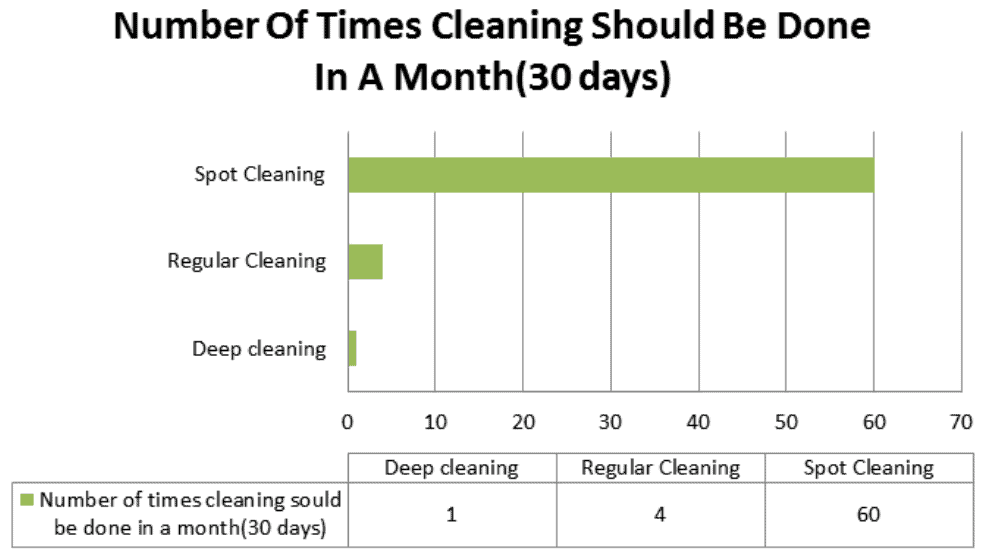
Spot Cleaning
It refers to a daily few minute superficials and simple spot cleaning. It is to ensure that your bearded dragon stays healthy and enjoys the best hygienic living environment.
In spot cleaning, you need to remove extra things from the tank. You should remove any kind of droppings, scales(if present), and unfinished food. Spot cleaning is the best way to analyze your lizard daily. Moreover, it is the best way to timely remove any kind of waste that can potentially cause serious infections to your bearded dragon.
Regular Cleaning
In regular cleaning, you need to remove your bearded dragon from the tank. You can then wipe every decoration, water and food bowl, and furniture present in the tank. You may also go for a thorough luxurious weekly bath for your bearded dragon.
Regular cleaning aims at maintaining the tank, setting the substrate, and then cleaning every bowel in the tank thoroughly with soap and water. You may also sanitize everything in the tank. Regular cleaning is the best time to enjoy a luxurious and friendly time with your bearded dragon.
In regular cleaning, you have to take care of the substrate thoroughly. If you are using loose substrate and less recommended substrate like sand, you need to replace them completely. Moreover, remove any kind of paper from the tank. You also have to remove the bearded dragon carpet (if using) and wash it. You may use vinegar and water to remove any stains from the tank in regular cleaning.
Deep Cleaning
In monthly cleaning, disinfection is the basic aim. Though you are doing regular and spot cleaning, bacteria can still grow massively in small crevices easily. Therefore you need to have a thorough clean monthly and disinfecting every part of the tank.
Bearded dragons’ cage is much prone to the growth of undesirable noxious microbes that can be harmful to your bearded dragon.
You can work by dipping every soakable object in the tank into the dilute solution of bleach. In this way, these objects are disinfected in the best possible way. There are also other methods you can look into that can result in effective cleaning.
However, during monthly cleaning do not go for strong chemicals as bearded dragons are very sensitive to chemicals and strong odors. Moreover, let everything dry completely before introducing your pet back into the tank.
Lower The Humidity Values:
Bearded dragons have a naturally hot and dry environment. They usually do not get to expose themselves to high humidity. Therefore their body is not developed to cope with high humidity in the environment. Therefore, they preferably not be exposed to high humidity levels.
Humidity levels higher than 45-50% may cause higher growth of bacterias which can be quite harmful to your bearded dragon. This can also result in a smellier environment, the smell your bearded dragon can also gather.
Therefore, maintain the humidity of your bearded dragon’s tank between 35-40%.
Have a thermometer or hygrometer for your bearded dragon and measure both the temperature and humidity of the enclosure of your bearded dragon. If humidity is more than normal you may go for a dehumidifier. Dehumidify until the humidity levels of the room in which you kept your bearded dragon are under the normal values.
Remember, unnecessary moisture is one of the biggest causes of smell and infection in the bearded dragon. Therefore, you need to work properly into the humidity levels of the surroundings of your bearded dragon.
Remove The Food Right Away
Rotten food creates a fetid environment for the bearded dragon. These funny smells are easily collected by your bearded dragon and therefore it starts smelling the same. Remove any kind of fruit and vegetable left by your bearded dragon. Do not put it so it can eat it again later. Remember, rotten food can not only cause your bearded dragon o smell bad but also develop multiple gut infections and other problems. Therefore, giving enough food for one time is the best possible decision.
Now, if you are feeding insects to your bearded dragon e.g., cricket, they might escape easily from the bowel before you can notice. Therefore, before leaving the place, always cursory check around the substrate, in the furniture, and all over for a chance of escaped insects. Moreover, if you are using the low-quality substrate, always deep check for any kind of small piece of food that fled from the bowel. There may be a small piece underneath which may start rotting and you do not even realize that it was there.
Check For Fungal Infections
Regularly your bearded dragon for the chance of infection especially fungal ones. Notice anything unusual on the skin of your bearded dragon. Check for the presence of any kind of white, discolored, or scaly skin. Do not confuse shedding with fungal infection in bearded dragon. It is completely different.
Notice poor behaviors, lethargy, and any kind of skin-related unusual problem. If you notice any kind of such infection visit your vet right away and have the medical treatment.
Bathing A Bearded Dragon
Bathing a bearded dragon helps to maintain hygiene and drop off any kind of smell and microbes it collects from the environment. You may bathe your bearded dragon once a month. You may also go for a fortnight bath for your bearded dragon in case it collects smell.
To bathe your bearded dragon you need to follow very simple and basic steps:
- Have a clean tub and fill it with lukewarm water.
- Make sure to keep the water levels below the shoulders of the bearded dragon.
- Make sure you put your bearded dragon calmly in the tub. Do not agitate it or let the water go into its eyes.
- Gently rub the skin with a clean mild brush. Pour the water on the back and let your bearded dragon enjoy and relax.
- Let your bearded dragon soak its full in the tub and play.
- Now, you can pat dry the skin and warm your bearded dragon.
- Always clean up the tub after finishing the bath with soap and water
Getting Higher Quality Substrate
Know when you focus on cleaning the tank right away, removing any kind of unnecessary food, and droppings from the tank, and your bearded dragon still stink, focus on the flooring or substrate part of the tank.
Look if you are using a suitable substrate and is it of high quality. Low-quality substrates need to be changed more frequently and have more chance of developing bacteria. Therefore, you may look into some high-quality substrates. High-quality substrates are not only easy to clean but also easy to maintain and have the least chances of getting inhabited by harmful bacteria.
Substrate Options:
We do not recommend you going for paper and sand. Both of these substrates are not easy to clean. Moreover, they can easily develop a lot of harmful bacteria in no time. Some of the substrate recommendations by us are given as:
ZeeDix 3Pcs Natural Coconut Fiber Reptile Carpet Mat

This carpet mat is
- Moisture-proof
- Flame and warmth retardation
- Easy to maintain and install. You just need to measure and cut into the size you need for your bearded dragon’s tank
- Easy to clean. You just need to remove it from the tank, wash with regular cold water and hang it to dry.
- 100% made of organic material and is comfortable and soft for your bearded dragon. Therefore, it is completely safe for juvenile bearded dragons.
The best part is that it is treated with biodegradable enzymes to reduce any kind of bad odors. Moreover, this reptile carpet is tough and durable. You may buy it on Amazon for $17.99.
Mechpia Extra Large Reptile Carpet, Terrarium Mat Liner Bedding Reptile Substrate

Mechpia tank liner is
- Soft and safe and is safe for juvenile bearded dragons
- Easy to clean. You can easily clean the mat with cold water. Moreover, you can easily collect droppings without leaving a stain on the tank.
- It does not collect odor
- Highly durable and tough
- The carpet is highly absorbable, gives your tank a clean look, and also has a low maintenance cost.
You can buy it on Amazon for $13.49.
Frequently Asked Questions
There are a lot of things about which people are worried when it comes to a stinky beardie. So, we noted most of the questions by worried bearded dragon owners coming to the clinic and also from online channels and answered them in this section.
Do Bearded Dragons Smell When They Shed?
Shedding is a completely natural process and it has nothing to do with smell. None of the reptile smell while shedding. Shedding is simply getting rid of dead skin. So, the animals do not produce any kind of specific odor during the whole process.
Does Bearded Dragon Shed Smell?
No, bearded dragons shed do not smell at all. The basic reason behind this is that bearded dragons do not lose their skin until it is completely dead.
Unlike reptiles, mammals shedding produce the smell. It is because they are constantly shedding the cells that are not completely dead. Or in other words, these half-living cells deteriorate as they fall off. Therefore it produces the smell. However, the complete dead skin cells of the bearded dragon are not prone to such degradation. Therefore they do not produce any kind of smell.
How Bad Does Bearded Dragon Poop Smell?
Bearded dragon poop smells horrible. Therefore, we always recommend you clear off droppings as soon as you see them. Otherwise, your bearded dragon will collect the same smell. The poop smell of bearded dragons is much more similar to that of humans. However, it also depends on the type and quality of food you are feeding.
Why Does My Bearded Dragon Smell Like Poop?
There can be multiple reasons why your bearded dragon is smelling like poop. One of them is that your beardie may accidentally crawl through its fecal matter to reach a specific. The other can be that you are too busy to remove the droppings on time completely from the tank.
If you do not clear the droppings completely, a part may remain their which will produce a filthy smell in the enclosure. The best way is to bathe your bearded dragon readily if you see any particulate matter or fecal matter on its skin.
Why Does My Bearded Dragon Smell Like Pee?
When you do not care about deep cleaning or regular cleaning of the tank, your beardie may start smelling like pee. Moreover, using less absorbant substrate will also result in your bearded dragon getting the smell of its pee.
So, look into the better substrate options. Deep clean the tank and wash the substrate thoroughly to get rid of the smell in the tank. It is best to go for substrate options that do not collect odor from the surroundings. Moreover, bathe your bearded dragon to get rid of the smell.
Why Does My Bearded Dragon Smell Like Fish?
The fishy smell is indicative of high humidity and rotten food in the tank. In short, filthy tanks are the biggest cause of fishy odors. Another uncommon but most probable reason is that when the bearded dragon owner adds fish to the diet of their bearded dragon, the poop start smelling typically fishy. So, the bearded dragon may collect smell from its droppings.
The best way is to locate in the tank the origin of the smell and remove it completely.
Why Does My Bearded Dragon´s Vivarium Smell?
Your bearded dragon’s vivarium smell as if it has a massive bacterial growth-producing bad odor. To avoid vivarium smells you need to
- Clean the vivarium regularly. Mind to remove droppings completely from the tank.
- Clear the food and water bowls with hot water.
- Use a mild bleach solution to soak the objects that can be soaked.
- You may use vinegar, water, and lemon to clean the tank.
- Remove uneaten food right away.
- Look if any other living object or insect is present in the tank
- Change your substrate occasionally and keep it clean.
Can I Put Baking Soda In My Bearded Dragon’s Cage?
Putting baking soda in the tank of a bearded dragon is commonly suggested by many pet stores. However, from an expert point of view, it is a clear no.
You can never place baking soda in the tank of your bearded dragon. Baking soda is one of the most commonly used cleansing agents in the household. So, new owners do not hesitate in cleaning their beardie’s tank with the same. However, baking soda can cause severe respiratory problems in bearded dragons. Moreover, it is also extremely toxic for your bearded dragon if it ingests it accidentally.
The best practice is using bleach and water in ratio 1:1. You can then use warm water to remove any kind of leftovers.
Do Bearded Dragons Sweat?
Sweat glands are mostly present in mammals and warm-blooded animals. Cold-blooded animals can maintain their body temperature so they do not have any such gland in them. Therefore, bearded dragons do not have any kind of sweat glands in them.
Bearded dragons regulate their temperature by changing their position, changing the color, or opening the mouth. They do not need a highly advanced mechanism of sweating to maintain their inner body temperature.
Conclusion:
Bearded dragons are one of the most docile and hygienic pets. They do not produce any smells and are very peculiar to their spots, therefore they do not ruin your whole house. This thing makes them most beloved and easy to groom pets. However, if your bearded dragon is smelling, you need to look into the surrounding. Locate the origin of the smell and work as we suggested. You will get rid of the smell readily. If you have any more questions, you may leave a comment. We will be delighted to help.




